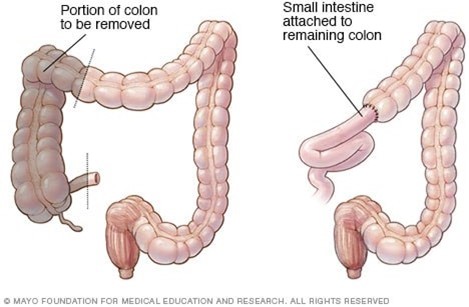A nurse is reinforcing teaching with the parent of an infant who is receiving furosemide. The nurse should reinforce with the parent that which of the following laboratory tests will be monitored while the infant is receiving this medication?
Potassium
b. WBC Count
Iron
Amylase
The Correct Answer is A
Answer: A. Potassium
Rationale:
A) Potassium:
Furosemide is a loop diuretic that can cause significant potassium loss through increased urine output. Monitoring potassium levels is crucial to prevent hypokalemia, which can lead to serious cardiac arrhythmias and muscle weakness. Ensuring potassium levels remain within a normal range helps maintain the infant's overall health and safety while on this medication.
B) WBC Count:
While it is important to monitor WBC count in various clinical situations, furosemide does not typically affect white blood cell levels. Therefore, monitoring WBC count is not specifically indicated for infants receiving furosemide unless there is another underlying condition that requires it.
C) Iron:
Iron levels are not typically affected by furosemide. Monitoring iron levels would be more relevant in cases of anemia or other hematologic conditions. Furosemide does not interfere with iron metabolism, so this test is not a priority for infants on this medication.
D) Amylase:
Amylase is an enzyme related to the pancreas and is typically monitored in conditions such as pancreatitis. Furosemide does not have a direct effect on amylase levels, so monitoring this enzyme is not necessary for infants receiving this diuretic. The focus should be on electrolytes, particularly potassium.
Nursing Test Bank
Naxlex Comprehensive Predictor Exams
Related Questions
Correct Answer is C
Explanation
c. Veracity
The nurse is exhibiting the ethical concept of veracity by providing the client with truthful and accurate information about the purpose of the medication. Veracity refers to the obligation to tell the truth and provide information in an honest and transparent manner.
Explanation for the other options:
a .Accountability: Accountability refers to taking responsibility for one's actions and being answerable for the outcomes. While accountability is an important ethical concept for healthcare professionals, it is not directly demonstrated in this situation.
b. Autonomy: Autonomy refers to respecting an individual's right to make their own decisions and choices regarding their healthcare. While the nurse is providing information to the client, autonomy is not directly demonstrated in this situation.
d. Fidelity: Fidelity refers to being faithful and keeping promises or commitments made to clients. While
fidelity is an important ethical concept, it is not directly demonstrated in this situation.
e. Justice: Justice refers to fairness and the equitable distribution of healthcare resources. While justice is an important ethical concept, it is not directly demonstrated in this situation.
In this scenario, the nurse's action of providing truthful information to the client aligns with the ethical
concept of veracity.
Correct Answer is D
Explanation
The subjective indication that the client needs PRN (as needed) pain medication is when the client reports pain. Pain is a subjective experience, and it is essential to address the client's self-reported pain level and provide appropriate pain management.
Explanation for the other options:
a) The client's heart rate is 110/min: An increased heart rate can be an objective indication of pain, but it is not a subjective indication. Subjective indications are based on the client's self-report or personal experiences.
b) The client is guarding their abdominal incision: Guarding the abdominal incision may suggest discomfort or pain, but it is an objective indication that can be observed by the nurse. Subjective indications focus on the client's self-report.
c) The client exhibits facial grimacing: Facial grimacing can be an objective indication of pain, but it is not a subjective indication. Again, subjective indications are based on the client's self-report or personal experiences.
In this scenario, the most reliable and appropriate indication for administering PRN pain medication is when the client reports pain, as this acknowledges the client's own perception of their pain level.

Whether you are a student looking to ace your exams or a practicing nurse seeking to enhance your expertise , our nursing education contents will empower you with the confidence and competence to make a difference in the lives of patients and become a respected leader in the healthcare field.
Visit Naxlex, invest in your future and unlock endless possibilities with our unparalleled nursing education contents today
Report Wrong Answer on the Current Question
Do you disagree with the answer? If yes, what is your expected answer? Explain.
Kindly be descriptive with the issue you are facing.
